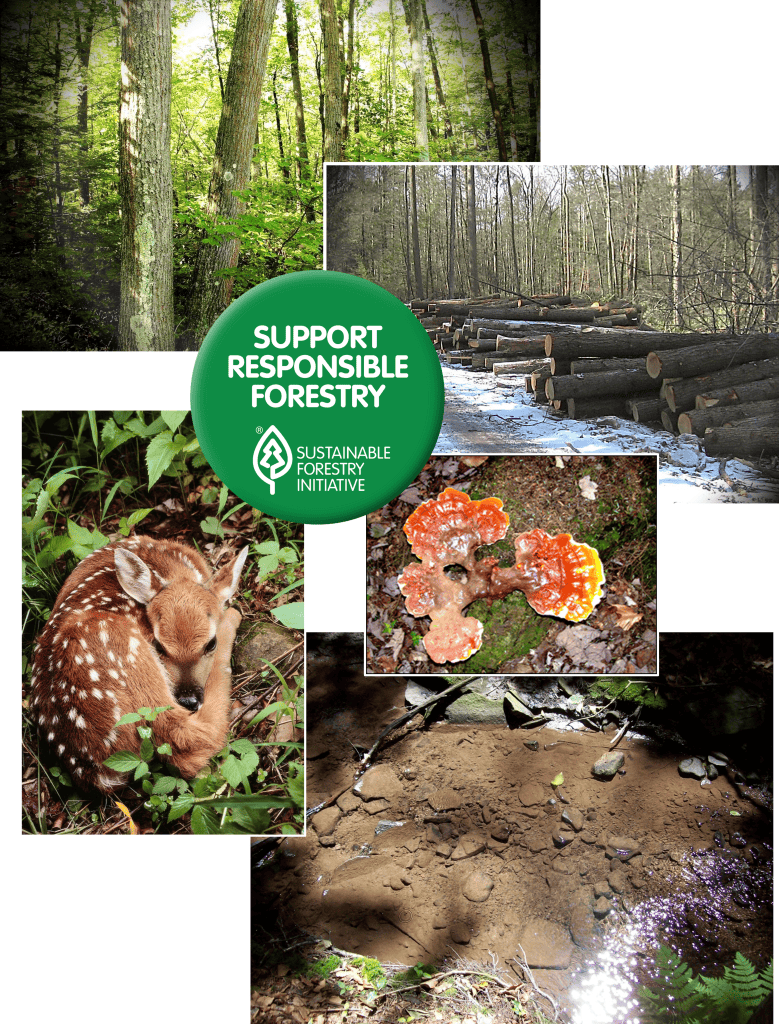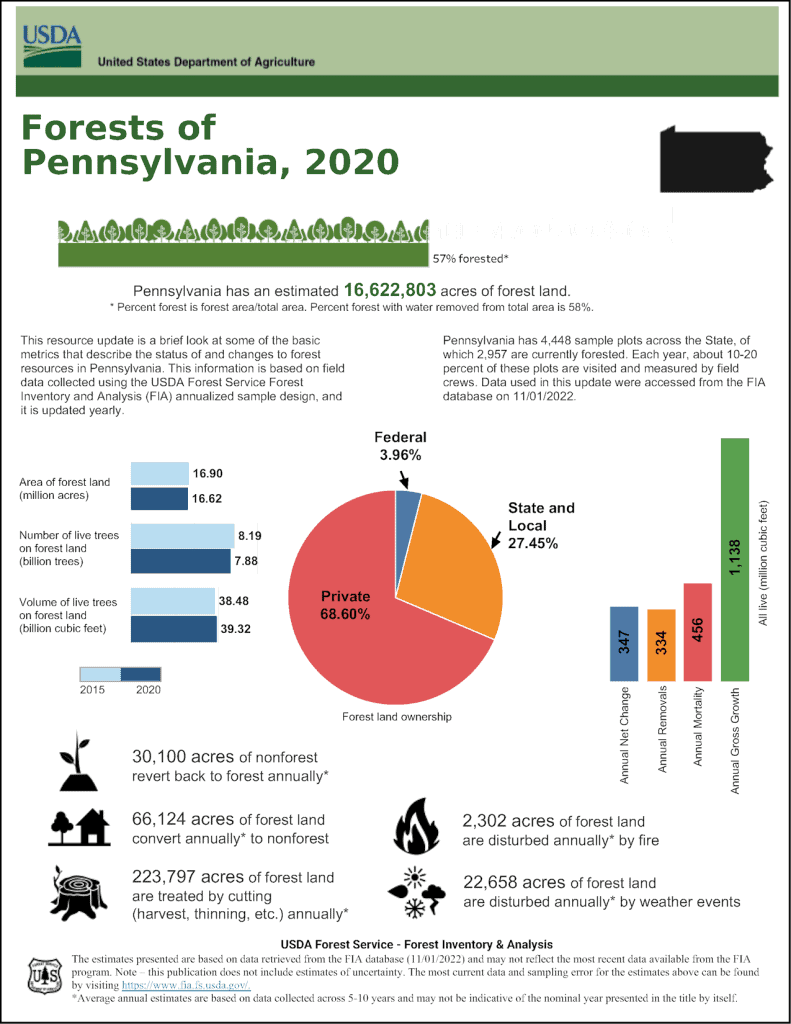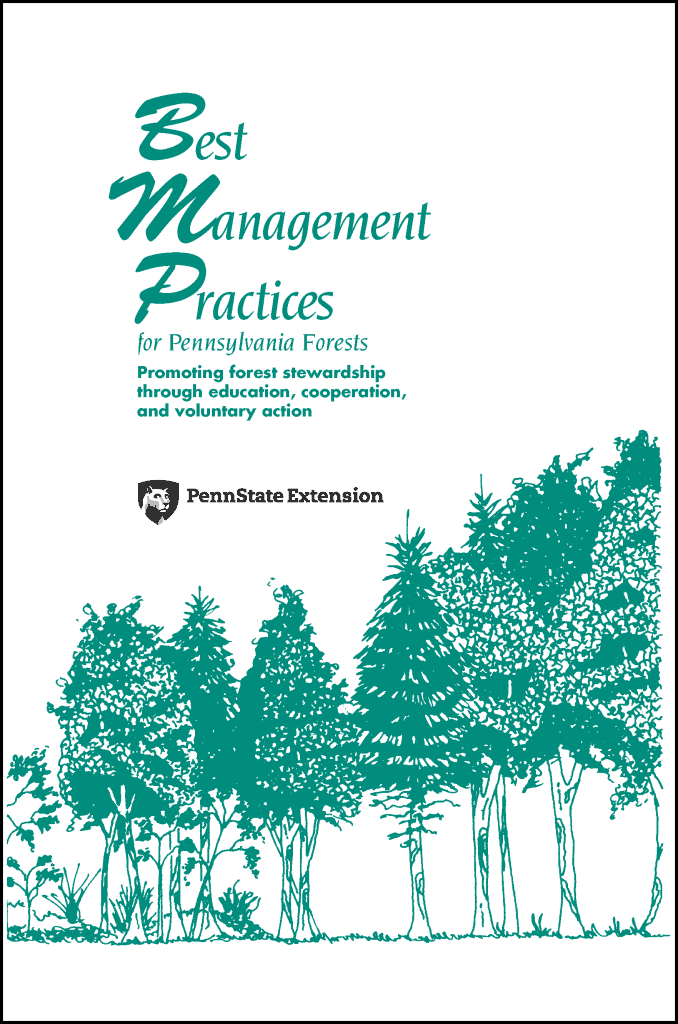
SUSTAINABLE FORESTRY IN PENNSYLVANIA
Sustainably managed forests make a vital contribution to society by providing economic, environmental and social benefits indispensable to the quality of life. A commitment to sustainable forest management means protecting water quality, soil, wildlife and unique resources; promoting human health and safety; and communicating the benefits of the practice of sustainable forestry.
The SFI program is based on the premise that responsible environmental behavior and sound economic decisions can coexist to the benefit of communities, landowners, manufacturers, shareholders, customers and the environment, today and for future generations.

SFI-Certified Organizations believe loggers and forest landowners have an important stewardship responsibility and a commitment to society, and they recognize the importance of maintaining viable commercial, family forest, and conservation forest land bases. They support sustainable forestry practices on forestland they manage, and promote it on other lands. They support efforts to protect private property rights, and to help all private landowners manage their forestland sustainably.
Practicing sustainable forestry means meeting the needs of the present without compromising the ability of future generations to meet their own needs. This is achieved when we practice a land stewardship ethic that integrates reforestation and the managing, growing, nurturing and harvesting of trees for useful products and ecosystem services such as the conservation of soil, air and water quality, carbon, biological diversity, wildlife and aquatic habitats, recreation, and aesthetics.
LOGGING PROFESSIONALS
Pennsylvania’s professional timber harvesting workforce serves an essential role in ensuring the sustainability of our state’s forest resources. Each day they operate as the boots on the ground, carrying out critical management activities that sustain our forests and supply our forest products industry. There is no other link in the wood fiber supply chain that has as much of a direct impact on the management of our state’s forests. As such, timber harvesters in Pennsylvania are vital stewards of our forestlands.
FOREST LANDOWNERS
Private non-industrial forest landowners have a critical role in maintaining the sustainability of Pennsylvania’s forests, as they comprise 70% of the total forest land ownership base. They have the ultimate responsibility for what happens on their land; however, they must also understand that the effects of their activities can extend beyond their property boundaries. Forest landowners should work with natural resource professionals and follow Pennsylvania’s forest management guidelines when planning and implementing land-management activities. They should also be aware of both the short- and long-term effects of those activities.

Forest landowners should also consider getting involved with their local Woodland Owners Association. Membership offers a great opportunity to meet and interact with other local forest landowners and many organizations provide excellent resources and educational opportunities for learning more about sustainable forest management. Although each group is independent, and missions and membership policies differ, most use meetings, field demonstrations, tours, seminars and newsletters to provide information about forests and sound forest management to their members and people in the local communities. If learning more about the stewardship of Pennsylvania’s forest resources interests you, consider joining one of the local organizations. If there is no group in your area, consider starting one.
FOREST MANAGEMENT GUIDELINES
Pennsylvania developed forest management guidelines in 1993 as a means of establishing minimal acceptable practices that provide the fundamental basis for practicing sound and sustainable forest management in Pennsylvania. They are designed to benefit a wide array of forest resources and values and can be used and applied by landowners, loggers, foresters, and other natural resource professionals. These guidelines are divided into three important categories:
- Planning
- Forest Operations
- Forest Values
Please explore the various subjects under the Sustainable Forestry menu at the top of the page for more information on each of these categories.


